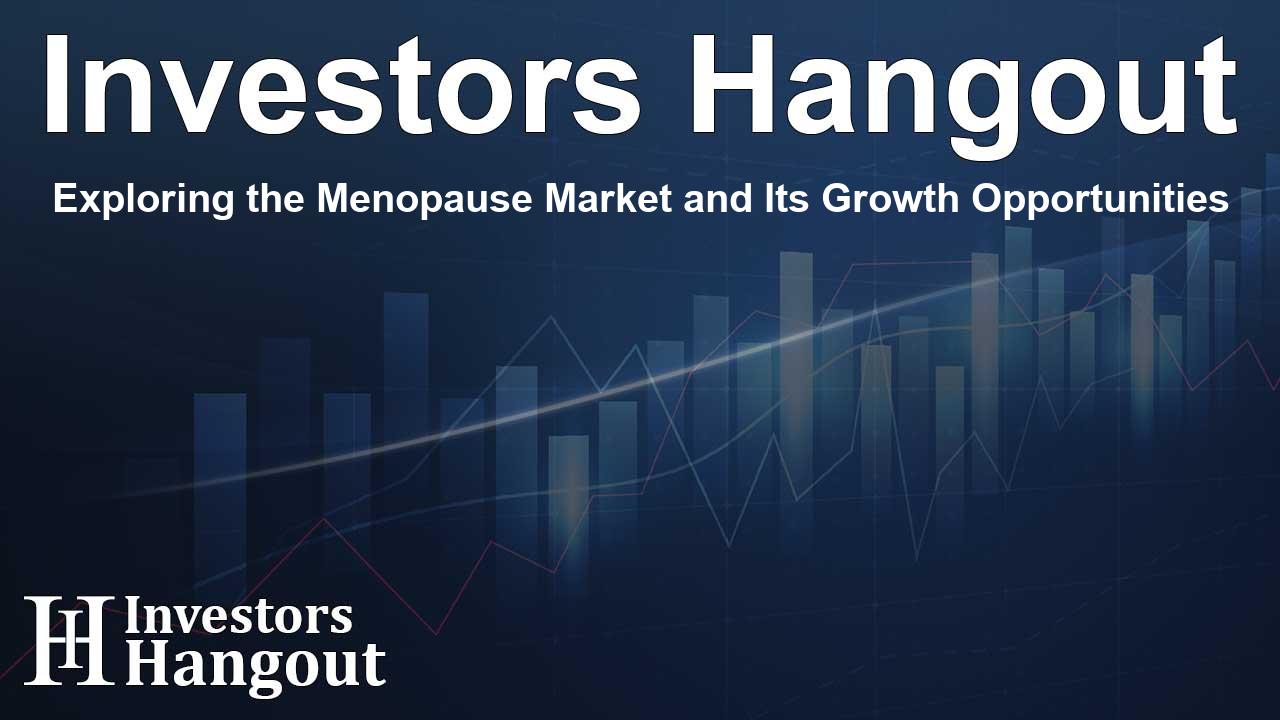Exploring the Menopause Market and Its Growth Opportunities

Understanding the Menopause Transition
Menopause is often defined as the conclusion of a woman's menstrual cycles, typically marking the end of her reproductive years. The transition into menopause, known as perimenopause, can begin as early as age 45 and may last several years. During this phase, women might encounter a variety of symptoms, such as changes in menstrual cycles, hot flashes, and mood swings. These experiences are unique to each individual, underlining the importance of personalized approaches in managing menopause.
The Growing Demand for Menopause Products
The global landscape is witnessing an increasing number of women reaching menopause, with projections indicating over a million women entering this phase by 2025. The rise in these figures represents roughly 12% of the worldwide population. Symptoms associated with menopause often lead to considerable discomfort, affecting productivity and the overall quality of life. As a result, there is a significant demand for menopause-related products, including dietary supplements and OTC medications designed to alleviate issues such as hot flashes and vaginal dryness.
Health Implications During Menopause
Menopause is linked to various health challenges, including musculoskeletal decline and heightened cardiovascular risks. Studies indicate that nearly 75% of women experience vasomotor symptoms, with 10% suffering from depression and 30% facing osteoporosis. The increasing prevalence of such conditions drives the necessity for effective treatments and remedies within the menopause market.
Innovative Treatments and Market Opportunities
There is a high demand for novel menopause treatments, with a startling percentage of women opting for self-care over professional medical solutions. The unmet needs in this sector present a ripe opportunity for companies to develop innovative products. For instance, numerous women are turning to over-the-counter remedies rather than prescription options due to the latter's high costs. Initiatives like the AI-driven project "Your Menopause Microbiome" are at the forefront of creating personalized alternatives for managing menopausal symptoms.
Regional Insights into the Menopause Market
North America currently holds the largest share of the global menopause market, expected to grow at a CAGR of 4.9%. The region is characterized by a strong emphasis on personalized healthcare and a robust adoption of telehealth services, which enhance accessibility to affordable treatments. Additionally, the presence of organizations advocating awareness about menopause further supports market growth.
Trends in Europe and Beyond
Europe, although slightly trailing North America, is anticipated to see a CAGR of 3.9% over the forecast period. The region reports a growing prevalence of menopausal symptoms, particularly among women experiencing obesity-related causes for early onset. As attitudes shift towards health and wellness, there’s an increase in the demand for both dietary supplements and topical remedies like vaginal lubricants.
Competitive Landscape in the Menopause Market
The menopause market is becoming increasingly competitive, with several key players at the helm, including Bayer AG, Reckitt Benckiser Group, and Dr. Reddy’s Laboratories. These companies are leveraging research and development to innovate new treatments and expand their product lines in response to the growing market demands.
Recent Developments Highlighting Market Growth
Recent announcements, such as the launch of effective dietary supplements and approval of new medications for managing menopause, underscore the industry's responsiveness to consumer needs. For example, a notable company recently introduced a new drug aimed at alleviating severe hot flashes, expanding treatment options for women seeking relief without hormone therapy.
Frequently Asked Questions
What is menopause and when does it typically start?
Menopause marks the end of a woman's menstrual cycles and usually occurs between the ages of 45 and 55, characterized by various symptoms such as hot flashes and mood changes.
How big is the menopause market?
The menopause market is projected to reach USD 27.63 billion by 2033, reflecting its rapid growth driven by increasing awareness and demand for menopause products.
What symptoms do women commonly experience during menopause?
Women may experience a range of symptoms, including hot flashes, night sweats, mood swings, and changes in weight and menstrual cycles during menopause.
Are there any new treatments available for menopause symptoms?
Yes, innovative treatments, including dietary supplements and FDA-approved medications, are being introduced to help manage menopause symptoms effectively.
Why is the menopause market considered to have growth potential?
The high prevalence of menopausal symptoms combined with a significant number of women not seeking treatment creates a substantial opportunity for new product development and market expansion.
About Investors Hangout
Investors Hangout is a leading online stock forum for financial discussion and learning, offering a wide range of free tools and resources. It draws in traders of all levels, who exchange market knowledge, investigate trading tactics, and keep an eye on industry developments in real time. Featuring financial articles, stock message boards, quotes, charts, company profiles, and live news updates. Through cooperative learning and a wealth of informational resources, it helps users from novices creating their first portfolios to experts honing their techniques. Join Investors Hangout today: https://investorshangout.com/
Disclaimer: The content of this article is solely for general informational purposes only; it does not represent legal, financial, or investment advice. Investors Hangout does not offer financial advice; the author is not a licensed financial advisor. Consult a qualified advisor before making any financial or investment decisions based on this article. The author's interpretation of publicly available data shapes the opinions presented here; as a result, they should not be taken as advice to purchase, sell, or hold any securities mentioned or any other investments. The author does not guarantee the accuracy, completeness, or timeliness of any material, providing it "as is." Information and market conditions may change; past performance is not indicative of future outcomes. If any of the material offered here is inaccurate, please contact us for corrections.